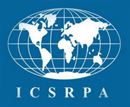On 21 May, 2013, the ICSRPA, Maastricht University and the Kiel Institute for the World Economy, under the auspices of the European Commission financed project “The Effects of Migration on Children and the Elderly Left Behind in Moldova and Georgia”, are organizing conference at Radisson Blu Iveria Hotel in Tbilisi.
This conference will highlight the results of the two-and-a-half-year research initiative, which provides one of the most comprehensive and timely assessments of migration and its impacts on family life in Georgia. Through the implementation of nationally-representative household and community surveys, in-depth interviews with the families of migrants, and interviews with government and civil-society stakeholders, this project has uncovered characteristics of contemporary migration trends and their implications for the functioning of Georgian families “left behind”. The conference will bring together government representatives, civil society representatives, and academics to discuss the results of the project and its application in future policy and programme planning.
Project “The effects of migration in Moldova and Georgia on children and the elderly left behind” was launched in December of 2010, and over the past 2 years a number of important actions have been taken to ensure complete implementation of the action. The project seeks to collect information from 8000 households and approximately 300 communities in total across Moldova and Georgia via nationally-representative surveys. These surveys will provide large-scale, quantitative data on how the absence of migrant household members affects the well-being of household who have remained in the country of origin (more specifically, those who would have received care from the migrating individuals). This data will help illustrate not only how wide-scale the migration phenomenon and its consequences are, but it will also identify how some of the most vulnerable segments of the population (children and elderly persons) cope with any potential changes to personal welfare following migration.
Over the past 2 years a number of essential activities have occurred to meet these goals. Within the first months of the project, consortium members travelled to both Moldova and Georgia for bilateral meetings with key stakeholders and most-knowledgeable respondents. Within these meetings government and civil-society actors alike were informed and consulted about the project, its goals, and its potential outputs. At the same time local implementation partners were sought in each country, and in the case of Moldova a number of subcontracted bodies were hired to facilitate interaction between project staff and local actors. In both countries preliminary qualitative research was conducted to better inform the development of the survey instrument and to help tailor data-collection tools and methods to local contexts. The household and communities surveys were then created, tested, and adjusted. In Moldova both surveys have also been piloted and finalised, and the surveys are currently being administered across the country. Semi-structured, in-depth interviews were conducted with a variety of respondents in Georgia to inform the development of the household and community surveys. A small-scale survey for state-run child-care institutions was also developed and implemented. After the initial collection of information via in-depth interviews, it became clear that additional qualitative data would be needed following the collection and preliminary analysis of the household and community survey data. The community and household surveys were developed, pre-tested, piloted, revised, translated (into Russian, Romanian, and Georgian), and implemented among eligible households and communities. As the household survey is being implemented via a computer-assisted personal interviewing (CAPI) method, an electronic survey application was also developed using the census software CSPro. Survey implementation in Georgia started in March of 2012. The survey is nationwide and includes all the regions. Total sample size is 4000 Households. The methodology of the study is Quantitative Survey, using face to face interviewing technique at the respondents domicile, using CAPI method. At the end of the June 2012 International Centre for Social research and Policy Analysis conducted workshop with key stakeholders to present preliminary results of the study and receive recommendations from the stakeholders. In the autumn of 2012 in-depth interviews were conducted with 30 migrant households across the Georgia. The collection of both qualitative and quantitative data has been finalized and data analysis is being carried out.




